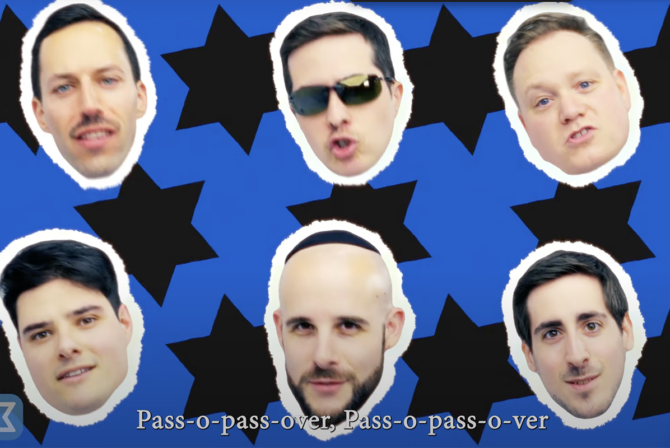A child has died.
A sweet, brave, smiling, bald 8-year-old boy named Samuel Sommer died from acute myeloid lukemia on December 14th. This is such bad news, I can barely type it out without getting furious. There is no calm way to understand this. An absolutely terrible thing.
And yet children die all the time. According to the World Health Organization, whose website I just clicked over to, millions of children die every year. But the millions of other poor dead children don’t move me the way Sam’s death does.
Why do I care so much about this one kid? Why do I know so much about this one kid?
Because of the Internet. Because of–of all things–social media. Sam is known to lots and lots of people in the Jewish online world, of which I happen to be a member, as Superman Sam because of the blog his mother, Rabbi Phyllis Sommer, started for him.
Understand that I am typing this in a coffee house, surrounded by coffee-sipping, newspaper-and-laptop-reading, happy people, and reading the December 14th entry–
For the first 10,543 days of my life, I was not Sammy’s mother.
And then I had 2,959 days of Sam.
Now I face thousands of days without him.
–and I’m starting to cry. Quietly. I don’t know Sam, or anyone in his family. Not really. I wasn’t even a regular reader of the blog. But the whole terrible event makes me think of my own 8-year-old son, who is at home playing Minecraft, and my 11-year-old daughter, who just called my cellphone to ask that I bring home a chocolate-and-orange muffin. The idea of having to watch one of them die is revolting, and my relief at not having to do so makes me feel even worse for the poor members of the Sommer family.
Social media–home to photographed entrees and selfies and a million varieties of trivia–has plugged me into the Sommer family’s pain. I am feeling it. And as I quickly recover, I remember something Milan Kundera once wrote: “To have compassion (co-feeling) means not only to be able to live with the other’s misfortune, but also to feel with him any emotion–joy, anxiety, happiness, pain.” (But even this is guided by the Internet: I only half-remembered the quote from The Unbearable Lightness of Being, and had to rely on Google to pull up the precise text.)
I know I’m not alone here. The people in my social network are posting and posting their sadness. Rabbis are shaving their heads. There is a collective misery being shared. And this level of sharing–the best, most humane kind of sharing one can do–wouldn’t have existed without our ubiquitous social media tools.
I sometimes think that social media is turning the whole world into something Sam will never become: a teenager. The ability to quickly post one’s feelings with the world is not likely to breed self-reflection, mature consideration, or a sense of the needs of others… and yet when I see what social media has done in the case of Super Sam, I reconsider. Social media, used the right way, can somehow help us become more empathic. Perhaps there’s a way that social media might be used to make us feel for the millions of children who, like Sam, die every year. Perhaps we can choose to use social media to bring us closer to the suffering of others. Perhaps it’s up to us to use it for the purposes of compassion.
Something to think about the next time you log on.







